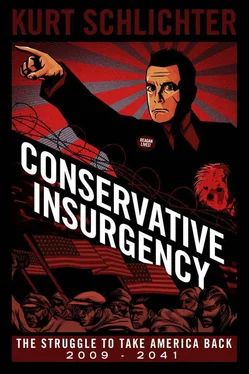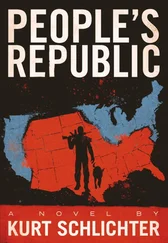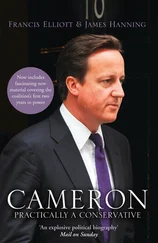Kurt Schlichter - Conservative Insurgency
Здесь есть возможность читать онлайн «Kurt Schlichter - Conservative Insurgency» весь текст электронной книги совершенно бесплатно (целиком полную версию без сокращений). В некоторых случаях можно слушать аудио, скачать через торрент в формате fb2 и присутствует краткое содержание. Год выпуска: 2014, ISBN: 2014, Издательство: Post Hill Press, Жанр: Социально-психологическая фантастика, humor_satire, на английском языке. Описание произведения, (предисловие) а так же отзывы посетителей доступны на портале библиотеки ЛибКат.
- Название:Conservative Insurgency
- Автор:
- Издательство:Post Hill Press
- Жанр:
- Год:2014
- ISBN:978-1-61868-977-1
- Рейтинг книги:5 / 5. Голосов: 1
-
Избранное:Добавить в избранное
- Отзывы:
-
Ваша оценка:
- 100
- 1
- 2
- 3
- 4
- 5
Conservative Insurgency: краткое содержание, описание и аннотация
Предлагаем к чтению аннотацию, описание, краткое содержание или предисловие (зависит от того, что написал сам автор книги «Conservative Insurgency»). Если вы не нашли необходимую информацию о книге — напишите в комментариях, мы постараемся отыскать её.
Conservative Insurgency
Conservative Insurgency — читать онлайн бесплатно полную книгу (весь текст) целиком
Ниже представлен текст книги, разбитый по страницам. Система сохранения места последней прочитанной страницы, позволяет с удобством читать онлайн бесплатно книгу «Conservative Insurgency», без необходимости каждый раз заново искать на чём Вы остановились. Поставьте закладку, и сможете в любой момент перейти на страницу, на которой закончили чтение.
Интервал:
Закладка:
These changes came less as a result of ideological shifts on the part of conservatism but as a result of the necessary ideological winnowing process the conservative insurgency underwent as it built and grew and fought. Conservatives were forced to make choices, both about where to focus their efforts and about which issues would harm the cause and which would help it. Some issues, hugely important in 2009, are essentially meaningless today in 2041.
The insurgency succeeded by not creating a rigid checklist of many specific, and mandatory, policy prescriptions. The liberals had built up their own inflexible, immutable list, and they were bound to it. Their positions were based less on principles than on the needs and demands of each of the Democratic Party’s myriad interest groups. Unions had their demands, for example, and those demands were incorporated into the checklist regardless of whether they supported or undercut some overarching principle. It created intellectual incoherence and a huge vulnerability to a principled opponent. When Carrie Marlowe and the GOP took back power in 2024, they were able to do so in part because the Democrats were so inflexible in their positions that the insurgents were able to outmaneuver them again and again. The liberals locked themselves into a platform of failure.
The insurgents, on the other hand, were able to succeed because they embraced a few general principles. They wanted a small government of limited powers, a federal government that stayed out of people’s lives and focused on the relatively few tasks given it under the Constitution, like national defense.
They wanted a culture where self-reliance was assumed, and where powerful elites did not control and plunder the country without restraint. They wanted their rights honored, including the right to speak freely, to practice their religion, and to keep and bear arms. Importantly, for the surveillance state revelations drove many libertarians to the insurgency, they demanded that the government respect the privacy of its citizens.
The insurgents, in sum, rejected the liberal establishment’s authoritarian, poor/powerful coalition’s dominance. However, their response to that dominant liberal paradigm disregarded many of the same political and cultural norms and customs they sought to restore. That tension between principle and expedience remains today. The insurgency is ascendant; regardless of how it sees itself, it is no longer the insurgency but the establishment .
But the question remains—made even more pressing by the recent GOP corruption scandals—whether principle or expedience will prevail. Governance is far different than insurgency.
Even as it faces the challenges of the present, the conservative movement can look back on a remarkable achievement. The story of the insurgency is not the story of a great leader. Rather, it is the story of a great people , a people who refused to allow their nation to be taken from them while being handed the bill. Taking as inspiration the wise authors of a document that was two-and-a-half centuries old, and acting largely as individuals in the face of the scorn and sometimes even active oppression by the establishment, they took their country back.
This is their story.
Chapter One: The Long March
Just 28 years ago, as Barack Obama began his final term in office, and with the Tea Party success of 2010 considered merely a blip in leftism’s relentless advance, conservatism appeared to be at its nadir in every arena of society. America, it appeared, had been “fundamentally transformed” into a poorer, less free, shadow of its former self.
Conservatism, the establishment agreed, was doomed.
But in 2041, the individualistic, free market ideology of constitutional conservatism rules in every major sphere of society. Progressivism is isolated and mocked. The most pronounced changes are outside of politics—constitutional conservatives are firmly established within the culture. In the media, in academia, the world of entertainment, and in everyday life, constitutional conservatism is—astonishingly to those over 40—the dominant paradigm. It is the cultural default, while its enemy, progressivism, is at best mocked as an archaic curiosity but more often scorned as a failed ideology of petty tyrants and elitist hypocrites. On television, it is the progressives who frequently find themselves the butt of jokes—and the conservatives are often the heroes.
This change did not simply happen. It was decades in the making, the result of a conscious and dedicated effort by constitutional conservatives to retake their country from the purveyors of progressivism. But it was not merely a political effort. Winning more political offices was a necessary, but not sufficient, goal. It was the culture that had grown to promote progressivism that would have to change.
It did not happen quickly. It faced many setbacks. But like Chairman Mao when he was forced to move his communist forces across China to escape destruction, it ended in victory.
Call it the constitutional conservatives’ Long March.
Rob Patel (President-Elect)
It is hard to imagine any American who has managed to avoid learning president-elect Robert Manuel Patel’s life story. In fact, in the last election his opponent famously sputtered in frustration, “He’s nothing but biography!” But, of course, that sold Rob Patel well short. A savvy political operator who understood how it resonated, he ensured his uniquely American story was front and center throughout the campaign. Combined with his unapologetic conservatism, it helped earn him a 60 percent popular vote landslide.
The president-elect agreed to meet me the day before the inauguration in his suite of rooms in the Ritz-Carlton in Washington, DC. Security was tight—as always, the Secret Service was tracking multiple threats, many from leftists enraged at his plans to push forward the conservative policies of his two predecessors. They know better than to ignore the profound frustration of the disenfranchised left in light of the assassination attempt on the vice president in 2039 by a pair of self-described anarcho-socialists from Yale Law School. If one had not accidentally shot himself in the toe with his pistol, it might have ended in tragedy rather than farce.
Patel welcomes me and offers me coffee. The ostentatious appointments of the Presidential Suite seem to embarrass him. “We fought against people who were devoted to the trapping of power,” he says. “And look at me now, in here, in the Ritz-Carlton! We need to keep reminding ourselves where we came from or we’ll become the establishment.” It’s an illuminating analysis from a successor to 16 years of conservative rule—in many ways, the constitutional conservatives still see themselves as outsiders.
We sit, him on an overstuffed chair and me on the sofa, and he begins…
I was a young man out of college with a ton of student debt in 2012. I don’t know—maybe $120,000, which was serious money then. I voted for Barack Obama because I really thought that government should and would take care of me. I thought it would care for me. After all, my teachers had taught me that all through my years in school. But then I got out into the real world, and there was nothing. No jobs, just lots of student loan debt weighing me down. It was the same for most of my friends.
Hope and change, Obama promised us, but all I saw was despair and decline. Yet as bad as the economy was, and it was really bad, the real problem was inside me. Like many in my generation, I had internalized a lot of the values and ideas of an American culture that had gone off track. I didn’t yet have the tools to succeed. I think liberals liked people like me being that way.
Читать дальшеИнтервал:
Закладка:
Похожие книги на «Conservative Insurgency»
Представляем Вашему вниманию похожие книги на «Conservative Insurgency» списком для выбора. Мы отобрали схожую по названию и смыслу литературу в надежде предоставить читателям больше вариантов отыскать новые, интересные, ещё непрочитанные произведения.
Обсуждение, отзывы о книге «Conservative Insurgency» и просто собственные мнения читателей. Оставьте ваши комментарии, напишите, что Вы думаете о произведении, его смысле или главных героях. Укажите что конкретно понравилось, а что нет, и почему Вы так считаете.












